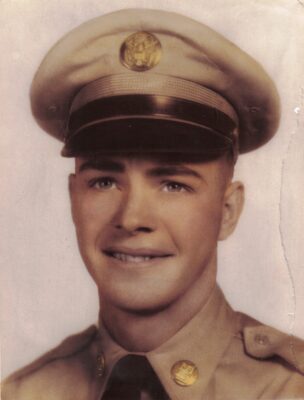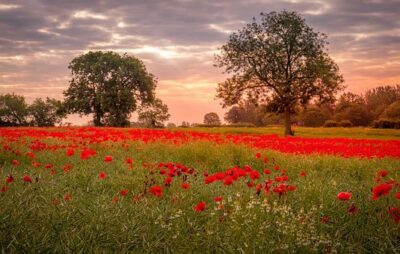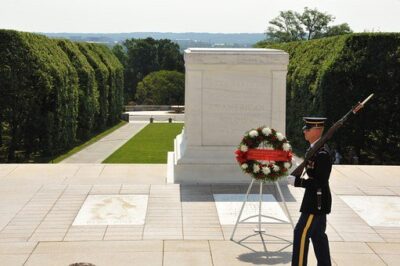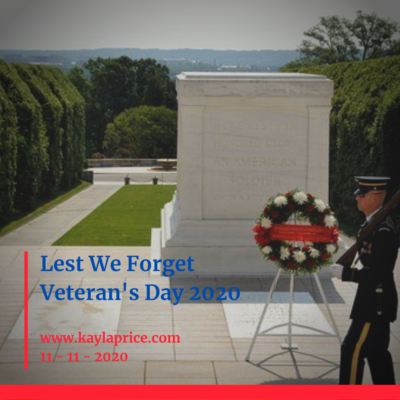This post is dedicated to the memory of my father-in-law, Roy L. Mitchell (9-5-31 to 10-10-20). He served in the U.S. Army, Field Artillery Corp, Korean War from 1952-1954.

Today marks the observance of Veteran’s Day, which in the U.S. means we honor veterans of all wars, both living and deceased. The date, November 11, was chosen as our Federal holiday due to the 11th hour of the 11th day of the 11th month of 1918 being the day that a ceasefire was declared during WWI. It marked the end of the Great War.
The anniversary of the WWI armistice (truce) has been observed every year since, starting in 1919. Originally known as Armistice Day, it became a Federal holiday in 1938. Later, in 1954, its name was legally changed to Veteran’s Day to include veterans of WWII and the Korean War.
For a brief time, 1971 to 1978, the Federal government moved the observation of Veteran’s Day to the fourth Monday in October to allow Federal employees a long weekend. When many states continued to commemorate the holiday on November 11, a new law was signed by President Gerald Ford to return to the former recognition date.

Although the use of poppies as a symbol of the day is more prevalent in the U.K., I do recall veterans selling or giving away silk poppies when I was younger. Sadly, I have neither seen displays nor the wearing of poppies in the U.S. in decades. Last weekend, I order a few poppy lapel pins to have on hand in the future. I like the visual reminder.
The poem, “In Flanders Fields” written by John McCrae in April 1915, provided the inspiration for the poppy as a symbol of those who died during the war. The day after his friend died during the second battle of Ypres in Belgium, McCrae wrote this poem when he saw the wild poppies growing around the makeshift graves.
In Flanders Fields
BY JOHN MCCRAE
Scarce heard amid the guns below.
We are the Dead. Short days ago
We lived, felt dawn, saw sunset glow,
Loved and were loved, and now we lie,
In Flanders fields.
Take up our quarrel with the foe:
To you from failing hands we throw
The torch; be yours to hold it high.
If ye break faith with us who die
We shall not sleep, though poppies grow
In Flanders fields.
McCrae was originally from Canada but had moved to Britain in 1904 to continue to study medicine. In 1914 he was serving as a surgeon in the Canadian Field Artillery.

“Lest We Forget” is used as a rallying cry to not forget the war and those who served. It comes from a poem by Rudyard Kipling written in 1897 in celebration of Queen Victoria’s Diamond Jubilee, entitled “Recessional.” In the poem, Kipling adapts the Biblical reference of “Then lest thou forget the Lord….” found in Deuteronomy 6:12.
Recessional
BY RUDYARD KIPLING
Lest we forget—lest we forget!
Lest we forget—lest we forget!
Lest we forget—lest we forget!
Lest we forget—lest we forget!
Thy mercy on Thy People, Lord!
Currently, it seems that we are all so busy, stressed that we don’t always get to take time for the things that we know are important for us and our families. Prayer, family meals, rest, quiet time, reflection, and thanking our veterans may be on your list of things you want to do, but don’t have time to do. Even if, just for today, we could each say a prayer of thanksgiving, for our current and former servicemen and women, it would be heard by God and felt by our veterans and active-duty members.
Thank you to all veterans and military service members, in particular, my father-in-law, Roy Mitchell; my grandad, Frank Price; my dad, Frankie Price; and my husband, Michael Mitchell. Lest We Forget.

